House of healing
-
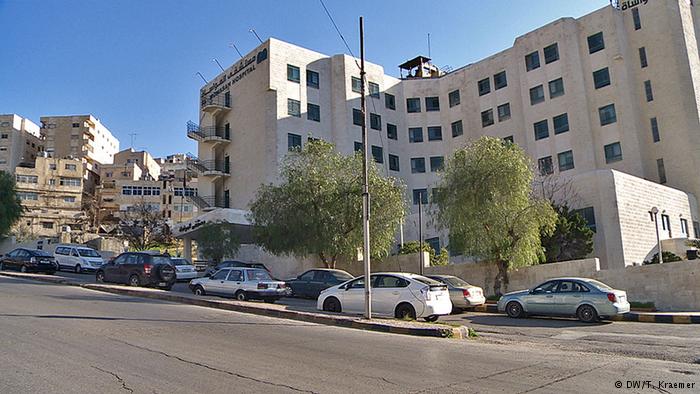
Welcoming victims of war: patients from the Gaza Strip, Iraq, Syria, Yemen and other conflict zones in the Arab world are treated at the Hospital for Reconstructive Surgery in Amman, Jordan, opened in 2006 by international medical group Doctors without Borders. Treatment is free of charge for patients -
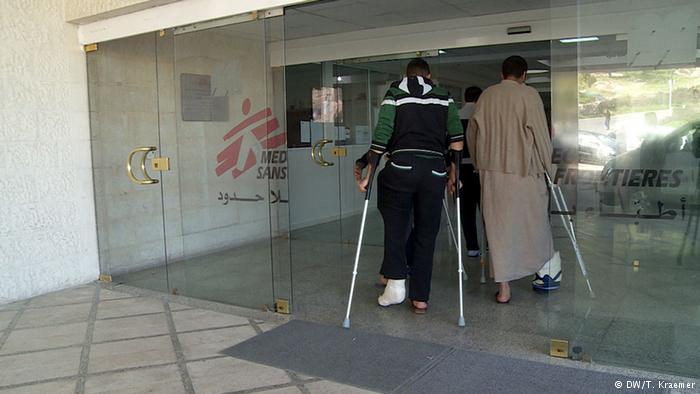
Safe house: Jordan has become a refuge for victims of war, fleeing conflict from neighbouring countries. The UN refugee agency, UNHCR, has registered over 630,000 refugees from Syria alone. The patients usually stay in Jordan for several months -
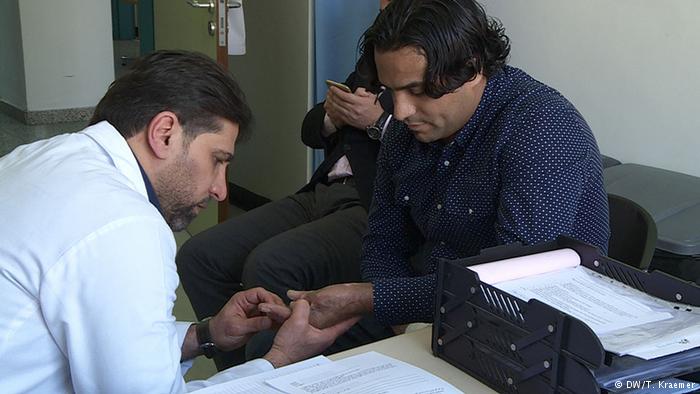
Hard heart: plastic surgeon Mukhalad Saud examines the hands of an Iraqi man who was maimed when a car exploded on the street. "Every patient here has a different story," says the doctor, who also comes from Iraq, adding that maintaining emotional distance can be difficult. "As a surgeon in the operating theatre I need to have a hard heart and a sharp knife" -
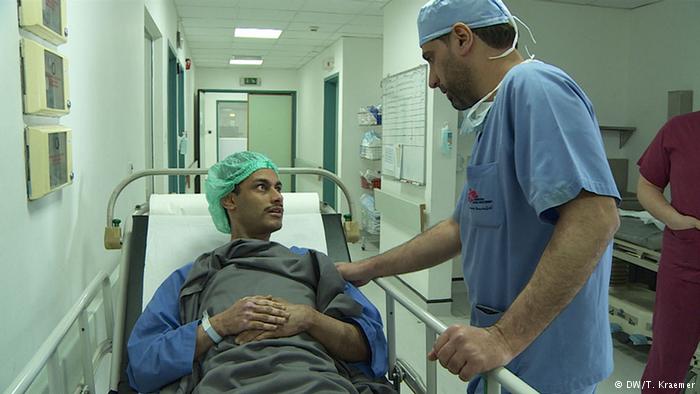
Pre-OP attention: before surgery Dr. Saud talks to a patient from Yemen who has severe burns on his upper body. The burn scars make it hard for him to move his arms. Over 3,600 patients have been treated in the hospital over the past 10 years, according to MSF -
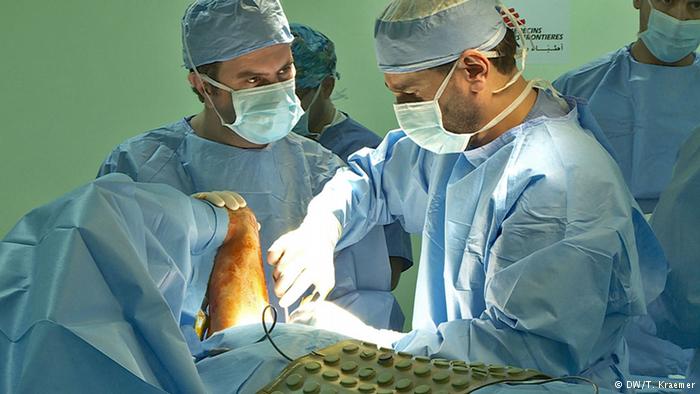
Complicated injuries: the surgeons are all specialised in highly complex injuries and long-term complications resulting from war injuries, such as orthopaedic surgery, plastic surgery and facial reconstruction. The hospital treats so-called "cold cases": patients with injuries that can't be treated in their home countries. They end up being referred to this hospital -
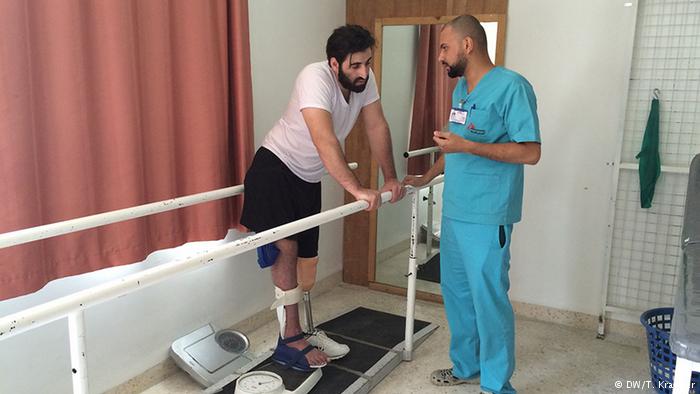
Post-surgery support: it can take months until a patient is able to walk after severe injuries and amputations. The hospital provides physiotherapy and psychological follow-up. "The doctors take care of the physical injuries and we support the patient who needs to learn how to cope with the new situation," says physiotherapist Sajdi Mouala. Therapists, specialists and doctors all work closely together -
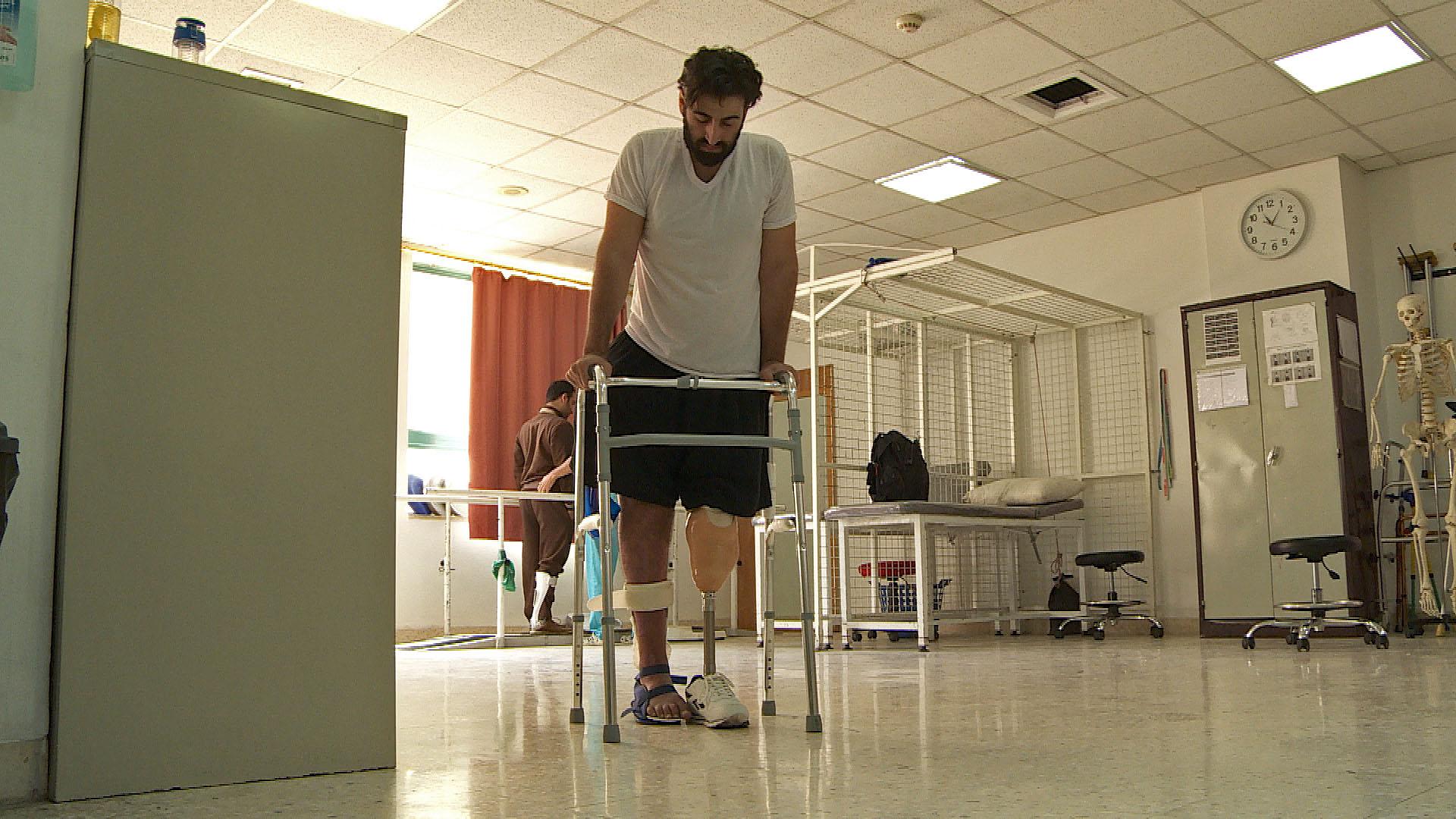
Step by step: Mouayad has undergone three surgeries so far and is learning how to walk with his prosthetic leg. "I don't think too much about my future," says the 26-year-old Syrian. "At the moment I try to focus on just being able to walk and take it step by step." He came to the hospital seven months ago -
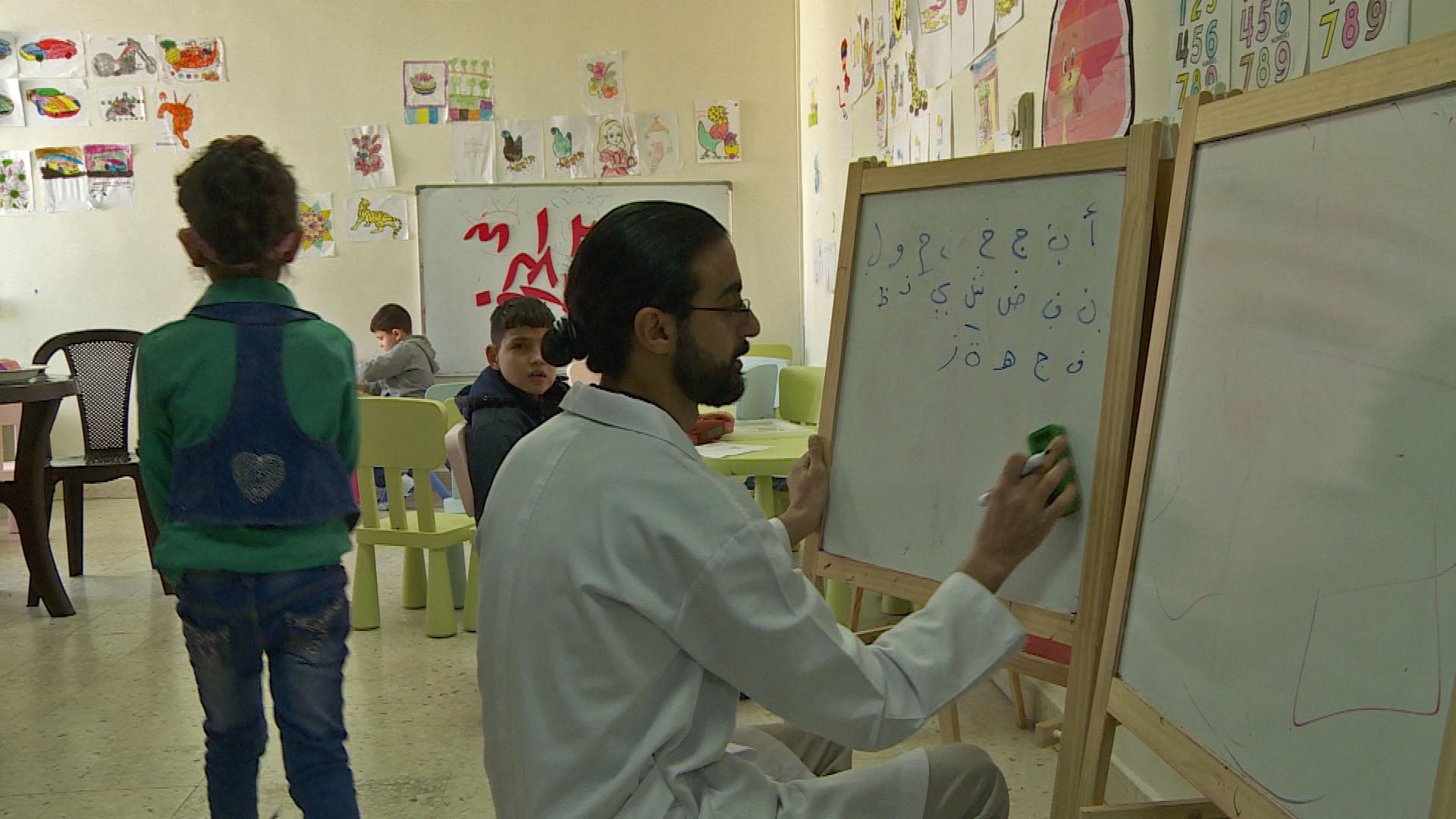
Deep wounds: the hospital also offers psychological help. Many patients have been traumatised by war. Therapist Talha Al Ali takes care of the youngest patients. "Every child copes differently. Some are hyperactive, others have nightmares, other are just very disturbed and ask a lot of questions," he says
https://qantara.de./en/node/32701
Link
To all image galleries
